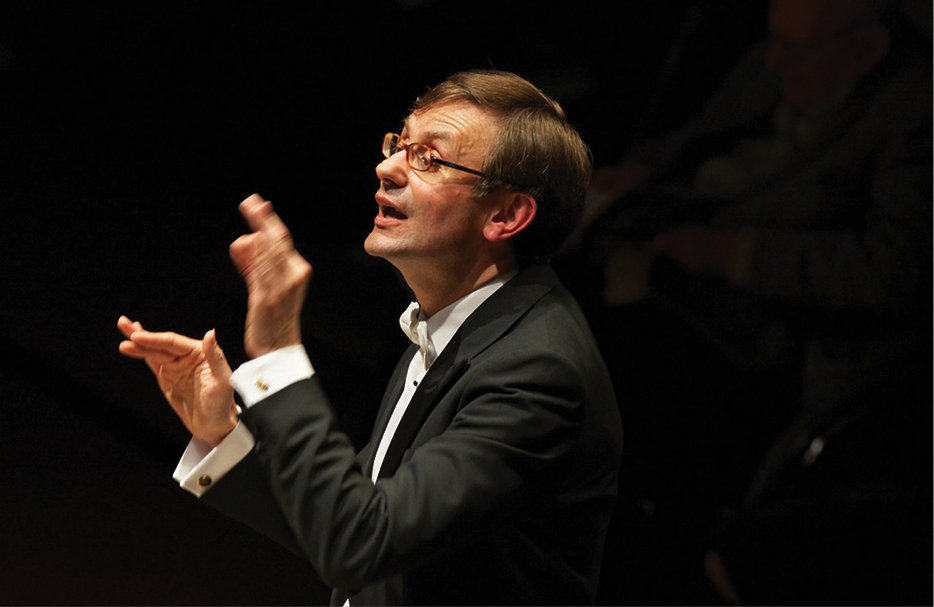Prior to the advent of recordings, those wishing to hear the latest works had little choice but to play them themselves. One piece the curious might have picked up is Brahms’ own arrangement of his now beloved German Requiem for piano four-hands, which, with choir, served as a special opener to the Sydney Philharmonia Choirs’ 2019 season.
 Simon Halsey
Simon Halsey
In his introductory speech, the distinguished British choral conductor Simon Halsey explained that he intended to emphasise the Requiem’s themes of joy and consolation, rather than suffering and death. In this compelling, stripped-back performance, joy did indeed have the final word, Halsey drawing lively, confident singing from the Philharmonia’s 120-strong Symphony Chorus. Impressive textual clarity was balanced with emotion that felt spontaneously realised, while important climaxes were attained with both control and panache. Though there were brief moments of wayward intonation from isolated sections, chorus entries were smoothly handled and there was an idiomatic way with the language that made this performance feel almost conversational and therefore even more intimate.
The soloists were every bit as good, Emma Pearson’s pure, liquid soprano doing full justice to Ihr habt nun Traurigkeit, one of the evening’s undisputed highlights. The text itself can be unbearably moving – Pearson, always a sensitive artist, displayed a restraint that made it even more affecting, speaking directly to Halsey’s vision for the work. Baritone Sam Roberts-Smith brought imposing tone and presence to his solos, especially impressive in Denn wir haben hier keine. He too sounded at home with the text.
Halsey’s pacing was everywhere persuasive, judiciously building up to climaxes and with a real feel for how the character of the choral writing necessarily shifts in this piano arrangement. Always achieving a clear separation of parts, the conductor pushed for a clean but expressive sound, the Finale achieving a lovely delicacy. Few would have missed the presence of an orchestra given the fine playing of pianists Claire Howard Race and Marlowe Fitzpatrick. Supple and stylish, they were similarly sensitive to the singers and made a fine case for Brahms’ arrangement.
Prior to the Requiem, Race opened the concert with a nicely weighed reading of the composer’s Intermezzo in B Minor, elegantly transitioning from its opening melancholy to a more cheerful lightness of touch. Pearson and Smith then brought plenty of character to some of his songs, coming together for the charming Es rauschet das Wasser, achieving the tricky vocal blend required for it to truly take off. Though Smith took some time to warm up for his own bracket of songs, his closing Mondnacht was beautifully phrased and conveyed with obvious feeling. Pearson is a fine storyteller, her penetrating soprano and exemplary diction making much of the text. She made the Wiegenlied sound unaffected and loving, just like a lullaby should be.
Read our interview with conductor Simon Halsey here.











Comments
Log in to join the conversation.